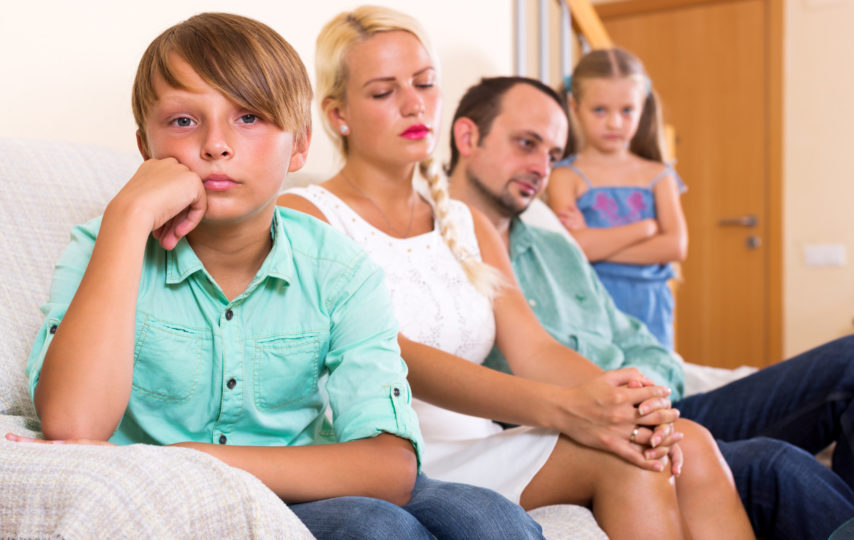Not sure how to help a child deal with divorce?
A 2018 report stated that there are 782,038 divorces every year. This brings the divorce rate in 45 states and DC up to 2.9 per 1,000 population. Despite its frequency, getting a divorce is often an emotional time for all involved.
As a parent, it’s your job to protect your child from certain risks. Children who experience divorce are at risk, especially younger kids. Below, we’ll discuss what you need to know about guiding your child during this difficult time in the family’s life.
1. Consider Risk and Protective Factors
Before you tell your child about the divorce, consider how it will impact their lives. Think about the risk and protective factors that divorce carries with it. Make it a point to consider them all not once or twice but many times.
You risk poor parenting, difficult family transitions, and financial decline. Divorce brings an unstable household and mental health issues if not handled right. This is why you and your partner need to discuss divorce and child custody well.
When a divorce gets handled by mature adults, you can also gain the protective factors of divorce. That includes healthy relationships between parents and child, cooperative parenting, and economic stability. As parents, you can also avoid conflicts that will otherwise hurt you and your child.
In the US, 23% of children under 18 years old live with only one parent. If you are a single parent who will take child custody after divorce, consider all its impact on your life. As a responsible adult, you must take both parents’ roles most of the time.
2. Share the News of the Divorce to Your Child
When breaking the news, keep a neutral but gentle tone and don’t sugar-coat it. Be transparent and tell it to your child like it is.
However, make sure you don’t share more than necessary. Don’t confide in your children about the reasons behind the divorce. It’s better for your child’s mental health if you confided in a friend or therapist instead.
If you’re breaking the news without your ex, don’t badmouth your ex to your child. Don’t share the frustrations you feel in the relationship. If you have a problem with your partner, don’t expose your child to it.
3. Encourage Your Child to Communicate
If you want to learn how to help a child deal with divorce, this is a vital step. Remind your kid to tell you what they feel about the divorce. When your child has something to say about it, listen to him or her.
Even the simple words “I miss my mom/dad” can tell you a lot about his concerns. It’ll help you connect with how he feels and see the situation from his perspective. Plus, expressing his feelings is a good way to ease his frustration and give him a sense of empowerment.
Inspire your child to speak his mind when he is with your ex-partner. If your child has difficulty communicating through words, tell him to write them down. Learning your child’s thoughts and feelings about the matter can help you see where you can improve.
4. Always Create a Backup Plan for Visitations
Does your ex find it difficult to make time for your child? Does your ex often cancel his visitation plans at the last minute or don’t show up at all? Your child may feel more hurt or confused when this happens.
Fill in both parents’ roles by being there for your child in the small and big moments. If your child’s dad doesn’t show up, then take over. Give your kid an ice cream as a treat to help assuage their disappointment.
5. Show Your Love for Your Child
One of the most important things to consider when divorcing a child is what they think. To be specific, you also need to put yourself in your child’s shoes. Children are selfish creatures and will often blame themselves for many things.
When his parents separate, a child may think that he was too unruly or too quiet. He will think this, even though the cause of the divorce doesn’t have any connection to his actions. These thoughts can blossom into self-esteem problems that can affect his adult life.
With this in mind, remind your child often that you love him or her. Reassure your child that your lack of commitment has nothing to do with his “lovability.” Even if your child is almost 18, show him that you love him.
6. Learn How to Help a Child Deal With Divorce Through Counseling
Is your teenager starting to rebel to communicate their feelings towards the matter? You may even notice that your child is less happy or talkative. In these situations, the smart choice is to ask for professional help.
Get help from an expert on child divorce counseling on managing your child. Your child may feel more comfortable opening up to a stranger. The important thing is that this stranger is a licensed therapist who can guide him.
7. Continue to Parent Your Child as a Team
Some people feel that once they get a divorce, they’re free of obligations. In a sense, this is true. However, no divorce can remove their obligations to their children.
If you don’t take care of your child after the divorce, who else will? As a parent, you must remember that it’s still your responsibility to care for and provide for the child. If you’re the parent who got left behind to do childcare, know your and your child’s rights.
If you need help in conducting family law investigations, click the link to learn more.
Help Your Child Deal With the Divorce
Divorce is messy, and it often hurts one or all parties involved. With their limited understanding, children often get hurt the most. Follow this guide on how to help a child deal with divorce to keep that from happening to your child.
Are you going through a divorce? Check out our other guides to find some tips on transitioning into your new situation.













